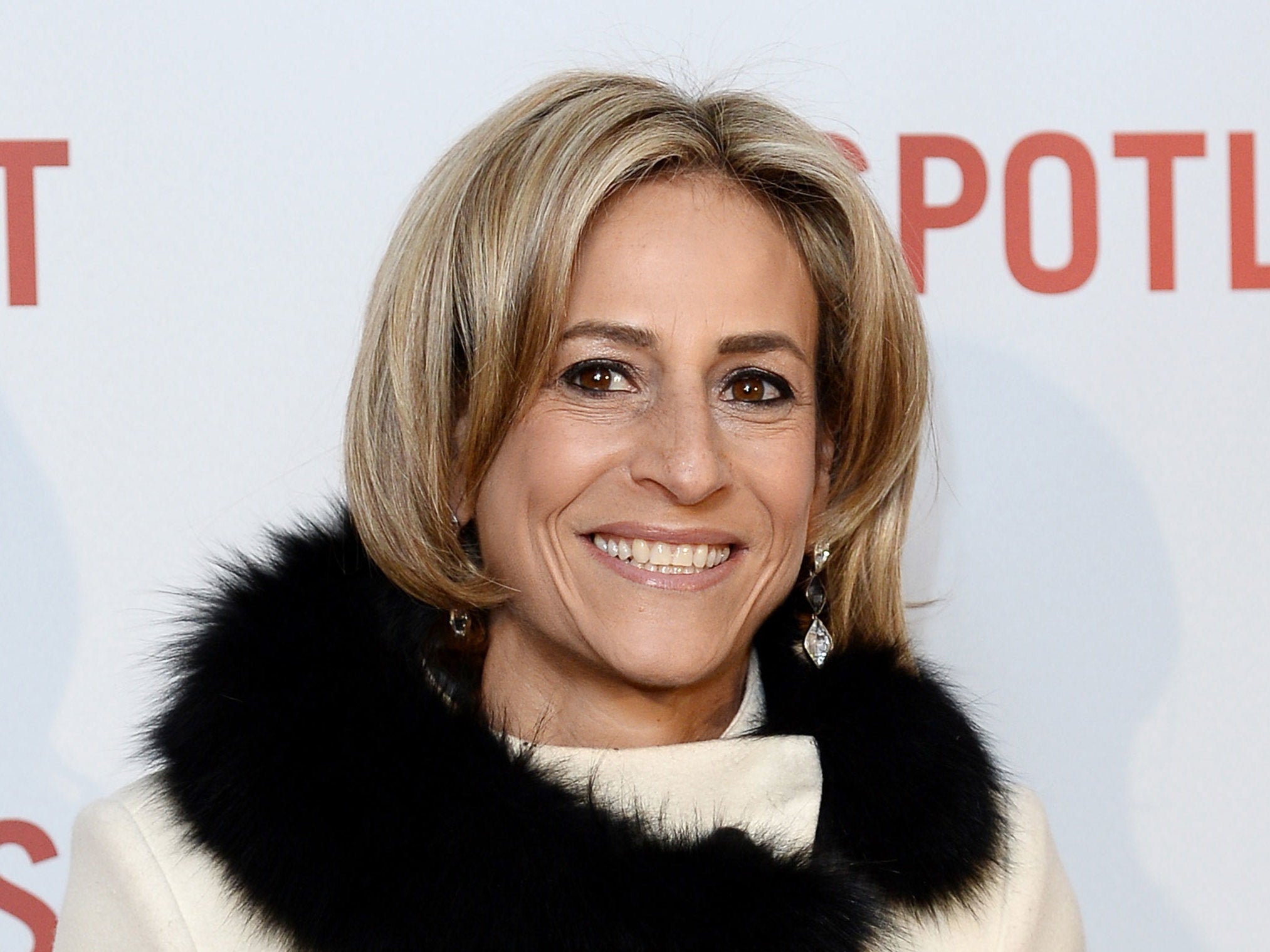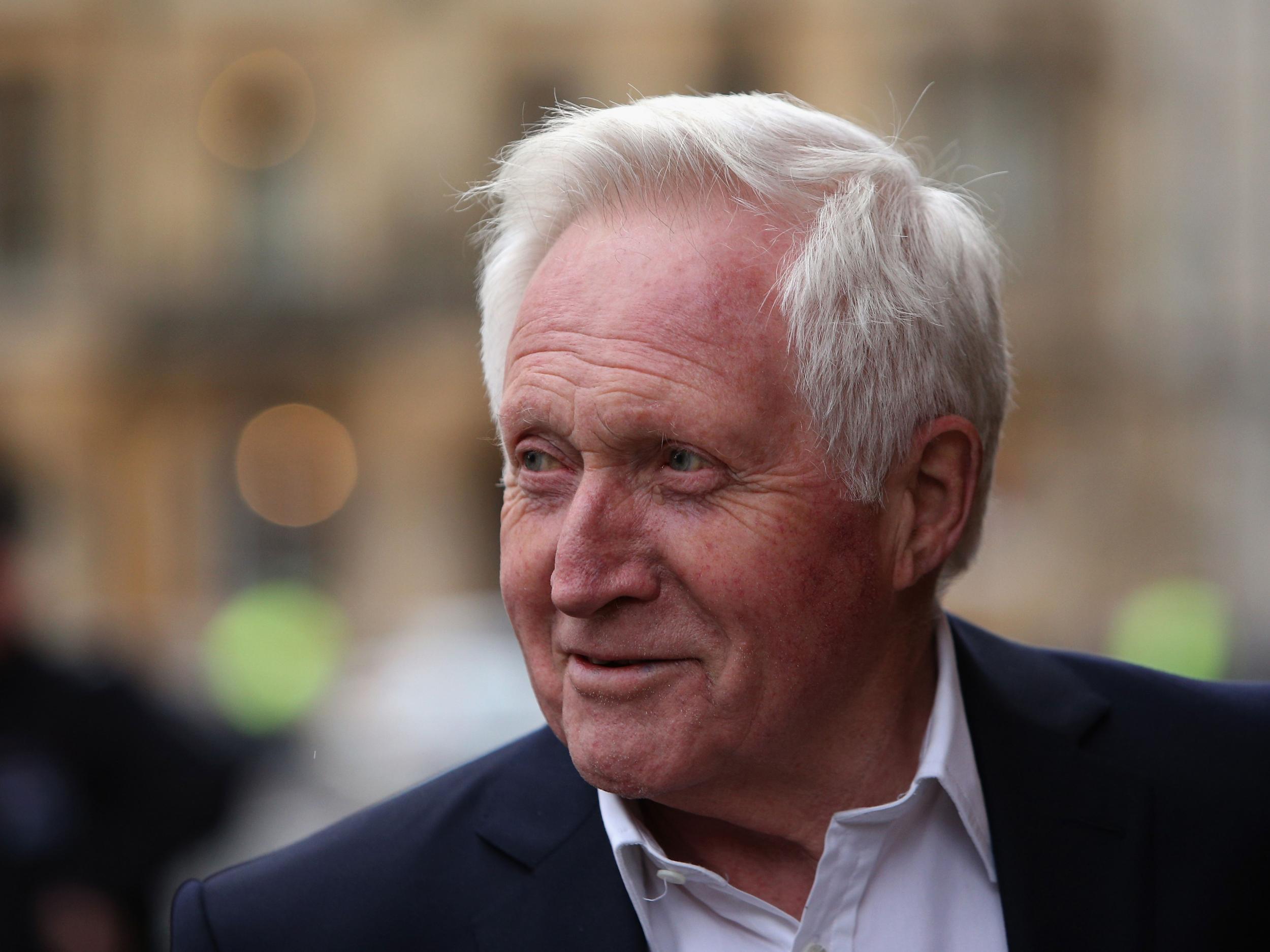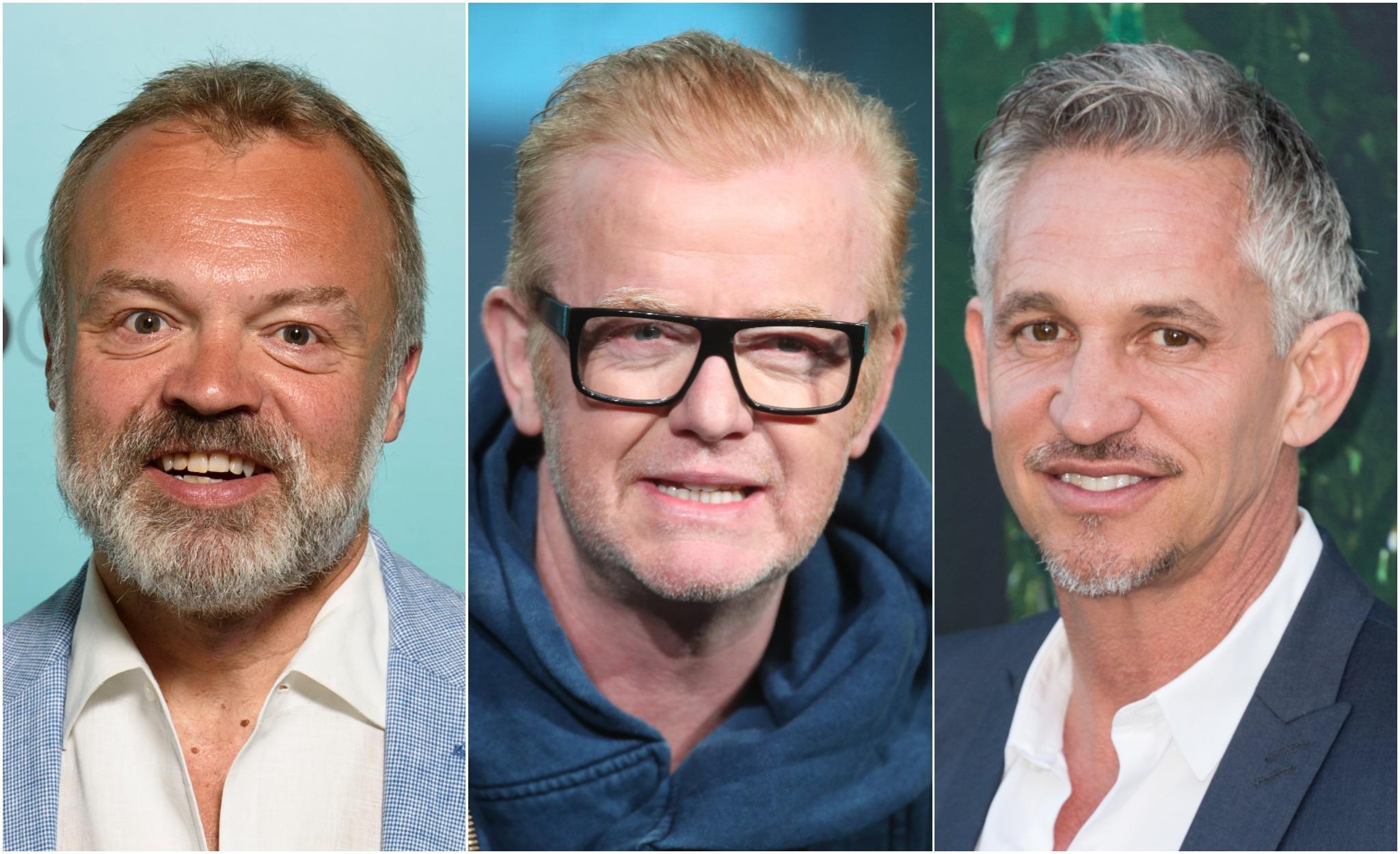BBC salaries: The famous faces missing from the public broadcaster's highest earner list
Some of the BBC’s top talent are not on the list because they would have been paid by an independent production company

Your support helps us to tell the story
From reproductive rights to climate change to Big Tech, The Independent is on the ground when the story is developing. Whether it's investigating the financials of Elon Musk's pro-Trump PAC or producing our latest documentary, 'The A Word', which shines a light on the American women fighting for reproductive rights, we know how important it is to parse out the facts from the messaging.
At such a critical moment in US history, we need reporters on the ground. Your donation allows us to keep sending journalists to speak to both sides of the story.
The Independent is trusted by Americans across the entire political spectrum. And unlike many other quality news outlets, we choose not to lock Americans out of our reporting and analysis with paywalls. We believe quality journalism should be available to everyone, paid for by those who can afford it.
Your support makes all the difference.The BBC has revealed the names of its highest paid talent, but many of the corporation’s best known faces – and voices – are missing from the list.
Among them are some of the broadcaster’s most respected journalists, many of them women, including Newsnight presenter Emily Maitlis, BBC News Channel newsreader Jane Hill and Woman’s Hour host Jenni Murray.
Today presenter Sarah Montague also fails to make the list of those on salaries of £150,000 or more, despite all five of her radio show colleagues making the cut.
John Humphrys, the highest paid of the Today cohort, earns between £600,000-649,999.
Carolyn Quinn, who presents The Westminster Hour and PM on Radio 4, is also absent, as is Emma Barnett, who presents a range of radio programmes including BBC Radio 5 live’s morning show.
But it is not just female journalists whose absence many will find surprising.
David Dimbleby, the face of BBC election coverage for a decade, and his brother and fellow veteran political broadcaster, Jonathan, are not on the list.

Weather presenter Carol Kirkwood, arguably Britain’s best known meteorological expert, was another omission from the BBC’s highest earners list.
BBC Breakfast presenter Naga Munchetty is in the £150,000 to £199,999 bracket, and her colleague on the show Dan Walker, who also works on Football Focus and fronted slots from the Rio Olympics, took home between £200,000 and £249,000.
But their fellow Breakfast presenters Louise Minchin and Charlie Stayt do not make the £150,000 bracket.
Famous faces from the BBC’s sport coverage not among the corporation’s highest earners include revered commentator John Motson, Olympics presenter Helen Skelton and football expert Mark Lawrenson.
Garth Crooks, one of the BBC’s few black sports presenters, is also missing.
Stars of Casualty and EastEnders dominate the highest earning list of actors.
But June Brown - EastEnders' Dot Cotton - is not on the list.
Some of the BBC’s top talent, including Mary Berry, are not on the list because they would have been paid by an independent production company, which the BBC paid.
Chris Evans, the radio and TV presenter who hosted Top Gear for one series, is the highest earner on more than £2m.
Matt LeBlanc, who now fronts the car programme, is not on the list, but it has not been disclosed whether he is paid £150,000 or more from BBC Worldwide, the broadcaster’s commercial arm.

The figures are for the money stars received from the licence fee from the financial year April 2016 to April 2017.
Director general Lord Hall said the BBC had reduced its spending on top talent by 25 per cent in the past four years and 10 per cent since last year.
He said: "I completely understand that to lots and lots of people these are very large sums, but we are a global broadcaster in a very competitive market and we have to be competitive - but not foolishly.
"No-one would want us to be paying sums where it's not at a discount on the market.
“People expect us to have great broadcasters, great presenters, great stars, but pay them less than they would get on the market. Getting that discount right is very important."
He described the publication of top salaries, which was opposed by the BBC, as a "bad idea" because it could tempt other broadcasters with deep pockets to poach stars, creating an inflationary effect on pay.
Join our commenting forum
Join thought-provoking conversations, follow other Independent readers and see their replies
Comments